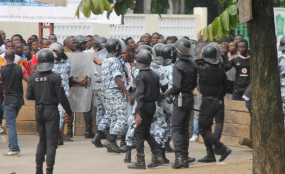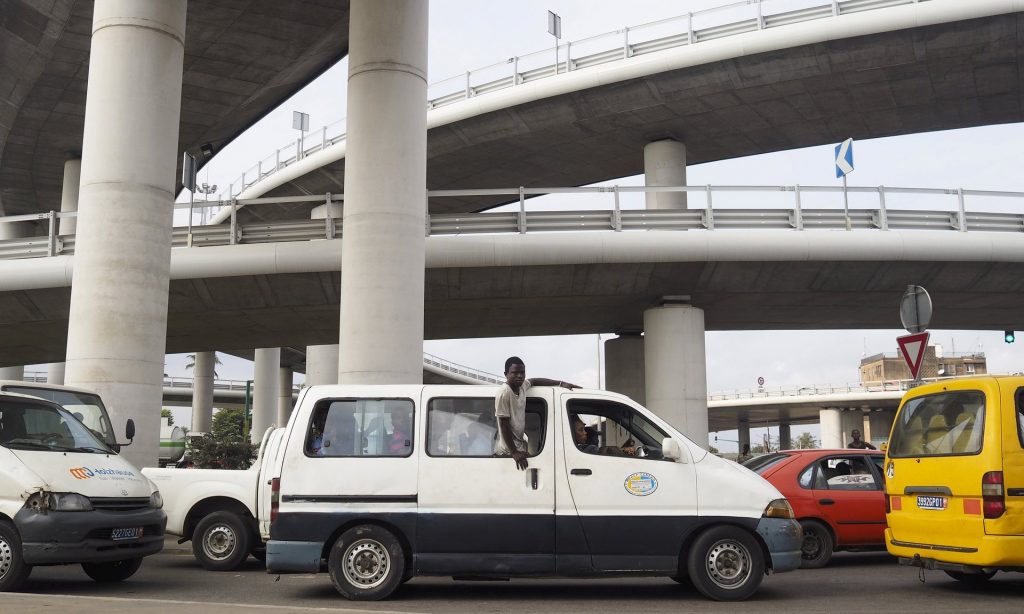Police in Ivory Coast arrested opposition figures and used teargas to disperse demonstrators gathering on Thursday to protest against a new draft constitution due to be voted on in a referendum later this month.

President Alassane Ouattara says the new constitution will turn the page on a decade of political turmoil and civil war, but opposition leaders have called the document a step backward for democracy in French-speaking West Africa’s largest economy.
Police in riot gear broke up the planned march in the commercial capital Abidjan as demonstrators were gathering early on Thursday. In addition to firing teargas at the still small crowd of around 50 people, Reuters witnesses saw officers strike protesters with batons.
“We came here democratically to say no to this constitution, and Mr. Ouattara is throwing us in prison. He can keep doing this, but we will also continue,” said opposition politician Mamadou Koulibaly as he was bundled into a police truck.
Aboudramane Sangare, who heads a hardline faction of ex-president Laurent Gbagbo’s FPI party, was also driven away by police along with around 20 other opposition supporters.
Government spokesman Bruno Kone said he was not aware of the incident. An interior ministry communications official declined to comment.
Ivorians will vote on the constitution on Oct. 30.
Ouattara promised during his re-election campaign last year to remove the constitution’s requirement for presidential candidates to have parents who are both born in Ivory Coast.
The clause has been a sore point in a country that has long attracted immigrants from neighboring countries and was used by Ouattara’s opponents to bar him from elections, becoming a symbol of exclusion, particularly of northerners like him.
Nationality was at the heart of a crisis that began with a 1999 coup and included a 2002-2003 civil war that split Ivory Coast in two for eight years.
Ouattara finally won election in 2010, although his victory sparked a second war that killed more than 3,000 people.
The draft constitution approved by parliament earlier this month softens the controversial nationality clause.
However it also makes other changes, including the creation of a senate and the post of vice-president, which the opposition says are designed to further entrench Ouattara’s political coalition.

